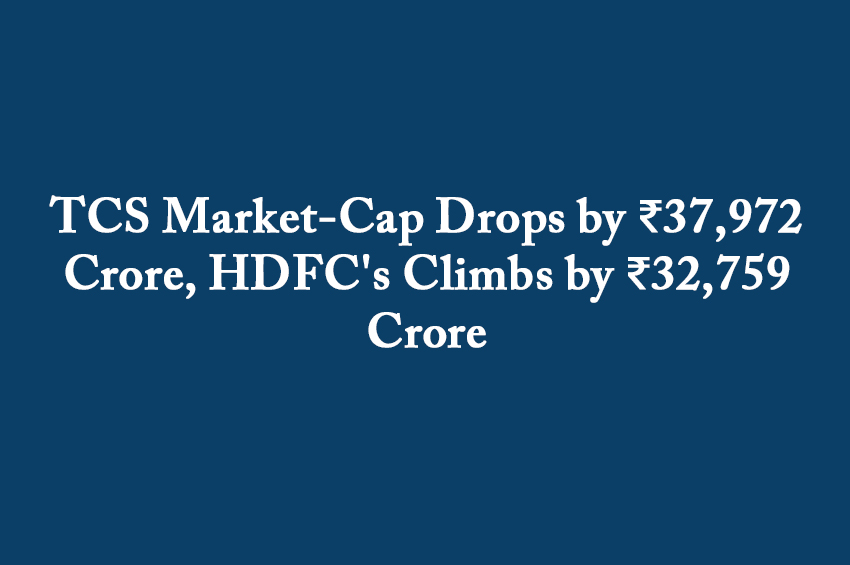Winning Bizness Desk
Mumbai. In a volatile trading week, the market capitalization of eight out of India's top ten companies plummeted by a combined ₹1,28,913.5 crore (₹1.28 lakh crore). Tata Consultancy Services (TCS) witnessed a significant decline, with its valuation dropping by ₹37,972 crore, bringing its market cap down to ₹15.50 lakh crore from ₹15.86 lakh crore. Other notable declines included Infosys, ITC, SBI, Reliance Industries, Bharti Airtel, ICICI Bank, and Hindustan Unilever. Conversely, HDFC Bank and Life Insurance Corporation of India (LIC) saw their market caps increase. HDFC Bank's market cap rose by ₹32,759 crore to ₹12.64 lakh crore, while LIC's valuation increased by ₹1,075 crore to ₹7.47 lakh crore.
Market Recap
The Sensex experienced a cumulative decline of 351 points over the week, underscoring a challenging period for the stock market. The downward trend was particularly pronounced on the last trading day of the week (Friday, August 2), when the Sensex fell by 885 points to close at 80,981. Similarly, the Nifty dropped by 293 points, ending at 24,717.
Out of the 30 Sensex stocks, 25 registered declines, while only 5 showed gains. The Nifty mirrored this trend, with 42 out of 50 stocks falling. Sector-wise, the NSE realty index saw the steepest decline at 3.53%, followed by Auto at 2.92%, Metal at 2.70%, IT at 2.41%, and PSU Bank at 1.72%. However, the Pharma sector rose by 0.52% and Healthcare by 0.36%.
Formula:
Market Cap = Number of Outstanding Shares X Price of Shares
Significance of Market Cap:
The market cap provides an estimate of a company's size and public perceived value. It is an essential factor for investors to consider, as higher market cap typically indicates a more stable and well-regarded company. Market cap fluctuates with stock prices, rising with price increases and falling with price decreases.
Investor Insights:
Given the current market volatility, experts suggest that investors consider holding defensive stocks, such as those in the FMCG and pharma sectors. The market is expected to remain turbulent due to various domestic and global macroeconomic factors. As investors navigate these uncertain times, the focus remains on fundamental strengths and strategic positioning within portfolios to mitigate risks and capitalize on potential opportunities.


